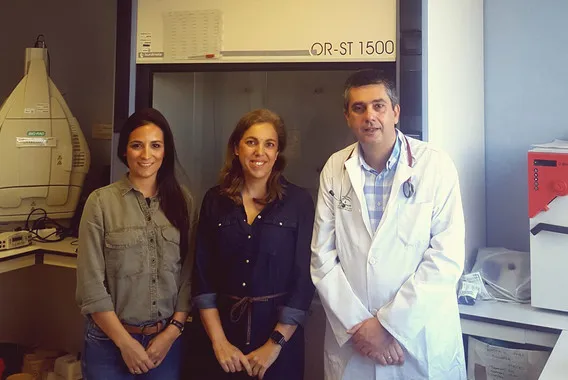Spanish researchers have related the development of type 2 diabetes with a smaller change and diversity in the intestinal bacteria of people with coronary arterial disease.The authors indicate that it is a new therapeutic objective for the treatment and prevention of complex cardiomethabolic pathologies through the regulation of the immune system.
The intestinal microbiota is key in the development of type 2 diabetes mellitus in patients with cardiovascular diseases.This has been demonstrated by a study that relates the changes and a reduced diversity in these bacteria with metabolic disease.
Researchers at the Biomedical Research Center of Pathophysiology of Obesity and Nutrition (CIBEROBN) and CIBER of cardiovascular diseases (CIBERCV), both of the Virgen de la Victoria hospital in Malaga, have published a study in Frontiers in Microbiology in which they analyzeThe role of intestinal microbiota on cardiomethabolic parameters and immunity in patients with coronary arterial disease with and without type 2 diabetes, evidencing its impact.
Thus, they have detected that the presence of type 2 diabetes in patients with heart disease is associated with a change in intestinal microbiota and a reduced diversity together with functional metagenomic differences.
Patients with diabetes had less beneficial or diners than those who did not develop the disease
In this way, they had less beneficial or diners than patients who did not develop diabetes (such as Faecalibacterium prausnitzii and fragilis bacteroids) and more opportunistic pathogens (such as Enterobacteriaceae, Streptococcus and Devibrio), which can alter the function of the intestinal barrier, increasing thezonulin levels and improving TMAO levels (trimethylamine N-oxide), so it raises the risk of inflammatory processes related to coronary arterial disease by increasing the production of inflammatory cytokines.
Guest metabolism and disease risk
The composition of the intestinal microbiota is a factor that links the metabolism of the host with the development of cardiovascular diseases and intestinal immunity, and in this study its role was analyzed in the cardiometabolic parameters and immunity in patients with coronary arterial disease with and without diabetesType 2 Mellitus.
The researchers showed that the diversity and composition of the intestinal microbiota were different among patients with and without diabetes.Thus, those who developed the pathology had less beneficial bacteria and greater presence of opportunistic pathogens.
As explained by Mª Isabel Queipo, of the Malaga node of the cyberbn, “the results suggest that the presence of type 2 diabetes mellitus is related to an altered regulation of the immune system in patients with coronary arterial disease through the composition and functionality of the intestinal microbiota andthe production and effects of its derived molecules ”.
In this sense, Manuel Jiménez, of the Cibercv Group of Eduardo de Teresa, emphasizes that thanks to this study of the intestinal microbiota, “we have a new therapeutic objective for the treatment and prevention of complex heart disease through the regulation of the regulation of the regulation of the regulation of the regulation of the regulation of the regulation ofimmune system ”.
BIBLIOGRAPHIC REFERENCE:
Lidia Sanchez-Alcoholado, Daniel Castellano-Castillo, Laura Jordán-Martínez, Isabel Moreno-Indias, Pilar Cardila-Cruz, Daniel Elena, Antonio J. Muñoz-Garcia, Maria I. Queipo-Teruño and Manuel Jimenez-Navarro.Role of Gut Microbiota On Cardio-Metabolic Parameters and Immunity in Coronary Artery Disease Patients With and Without Type-2 Diabetes Mellitus Front Microbiol.DOI: 10.3389/FMICB.2017.01936


